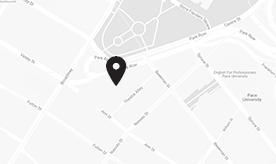Residential Program
Opened in 1987, was created to provide a safe, temporary refuge for people needing a place to sleep. This safety net provides a needed landing place for those running out of options. After completion of Phase 1, clients work with their counselors to explore part-time or full-time employment opportunities or some structured time that fits their abilities. Clients continue to attend group meetings and individualized treatment in the evening.
Dedicated to Ending Homelessness & Creating Healthy Communities
- We provide personalized treatment by utilizing evidence-based practices from a strength-based perspective for men and women living with a Substance Use Disorder (SUD).
- Life changing experience for the better, after months of treatment I feel comfortable with myself.
- Most outpatient rehabs provide multiple levels of care to align with clients’ unique needs.
- There are a number of different group therapy modalities, including support groups, experiential therapy, psycho-education, and more.
The outpatient program at House House Boston offers personalized treatment by utilizing evidence based practices from a strength based perspective for men and women living with a substance use disorder (SUD). Patients in the outpatient program can receive various addiction treatment services including 12 Step education, medication assisted treatment (MAT), individual and group therapy, and relapse prevention education. utilizes diverse, multi-disciplinary approaches to address the problems of homelessness and poverty. It is the mission of to end homelessness and create healthy communities within the city of Milwaukee. In addition to residential services, provides community outreach to individuals needing health care, food distribution, financial assistance, and educational opportunities for adults and children.
Gandara Mental Health Center – Outpatient Services Division
Patients of are encouraged to plan for a safe living environment to discharge to at the beginning of their treatment. Boston will work with their client to find the best fit for their unique needs and the level of care that ensures continued sobriety. has forged new partnerships in recent years resulting in a collaboration with the United Way of Greater Milwaukee and Waukesha County with their Family Flex Fund.
Trauma Therapy
‘s mission is to break the cycle of domestic violence by providing safe refuge and supportive services that educate and empower those impacted by domestic violence. will advocate social change that protects and engenders a person’s right to live a life free of abuse. They treat those suffering from addiction to illegal opioids like heroin, as well as prescription drugs like oxycodone. These centers typically combine both physical as well as mental and emotional support to help stop addiction. Physical support often includes medical detox and subsequent medical support (including medication), and mental support includes in-depth therapy to address the underlying causes of addiction.
Opioid Addiction
Read about our previous years efforts and see our statistics in the fight on homelessness. Domestic violence can happen to anyone, no matter their gender, Rockland Recovery Review age, race, ethnicity, religion, or sexuality. values all forms of feedback, including making sure our staff know when they’ve done a great job.
Completing a drug or alcohol rehab program shouldn’t spell the end of substance abuse treatment. Aftercare involves making a sustainable plan for recovery, including ongoing support. This can include sober living arrangements like halfway houses, career counseling, and setting a patient up with community programs like Alcoholics Anonymous (AA) or Narcotics Anonymous (NA).Aftercare emphasizes maintaining recovery. At the outset of Phase I, clients are evaluated for needs in the areas of housing, medical conditions, job prospects, and the like. A client may be referred to community programs and/or practitioners with affiliation agreements with .
provides services that aim to end homelessness and create healthy communities. Acting as a true community center, offers numerous programs and activities to assist men, women and children struggling with homelessness. In individual therapy, a patient meets one-on-one with a trained psychologist or counselor. Therapy is a pivotal part of effective substance abuse treatment, as it often covers root causes of addiction, including challenges faced by the patient in their social, family, and work/school life. With a mission to provide individualized treatment to those living with a substance use disorder (SUD), Boston provides multiple levels of care to assist patients on their journey to sobriety. Trauma therapy addresses traumatic incidents from a client’s past that are likely affecting their present-day experience.
We continue to provide the services that the St. Catherine Residence is known for as well as adding new programs to this 164 unit building. is dedicated to making sure every individual affected by domestic violence can find refuge and freedom. Offering youth and adult education programs that enrich and enhance the lives all participants. Life changing experience for the better, after months of treatment I feel comfortable with myself. has a grievance procedure in place to make sure that clients and/or constituents have a way to formally log a complaint or concern, be heard, and find solutions. Individuals have the right to use the grievance procedure if they believe that any policy has been unfairly applied or if they and their family have been mistreated by any personnel.
Clients who are unable to work are expected to attend house meetings and to take advantage of volunteer opportunities. This program aspect consists of participation in weekly small groups convened to address daily living issues and the need for peer and/or additional professional support. In Massachusetts, substance abuse treatment programs can help to address addiction and, if relevant, any co-occurring mental health conditions.
Regular attendance at 12 step meetings, which are anonymous, free, and available daily, is expected. The 12 steps of recovery are based on spiritual principles and support participants in addressing the root causes of their disease, accept responsibility for their choices, and accept that which is beyond their control. is a non-profit emergency homeless shelter and rapid rehousing facility and community center located in the near south side of Milwaukee.


